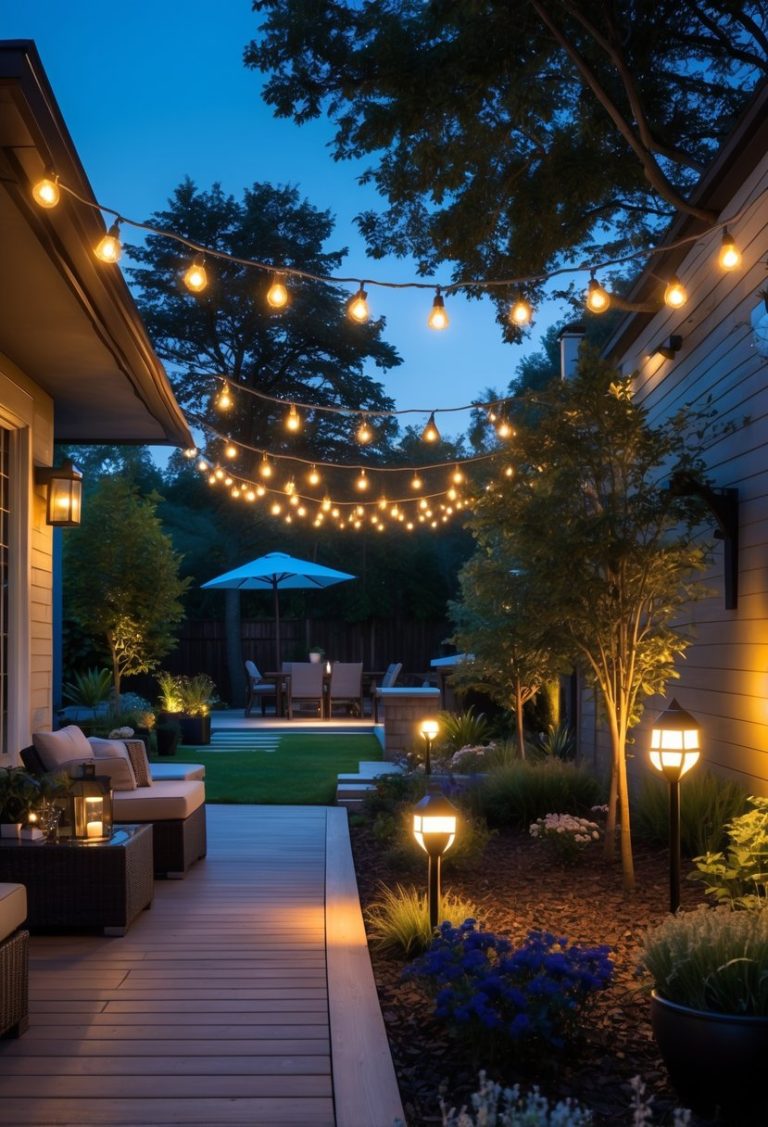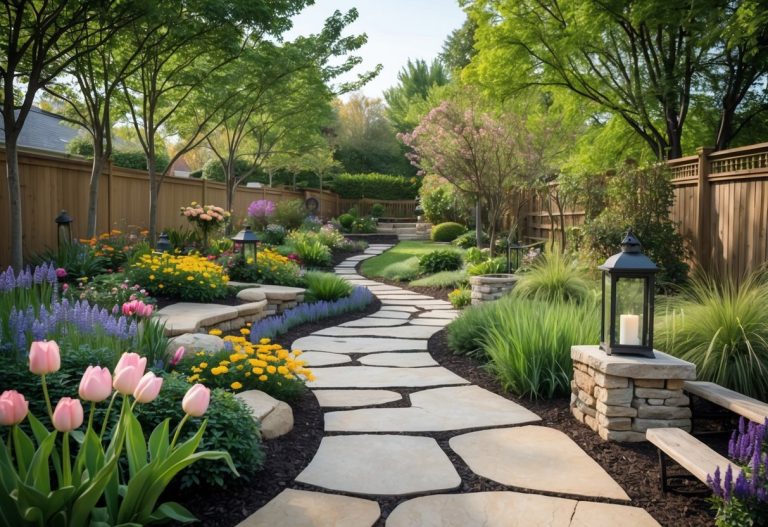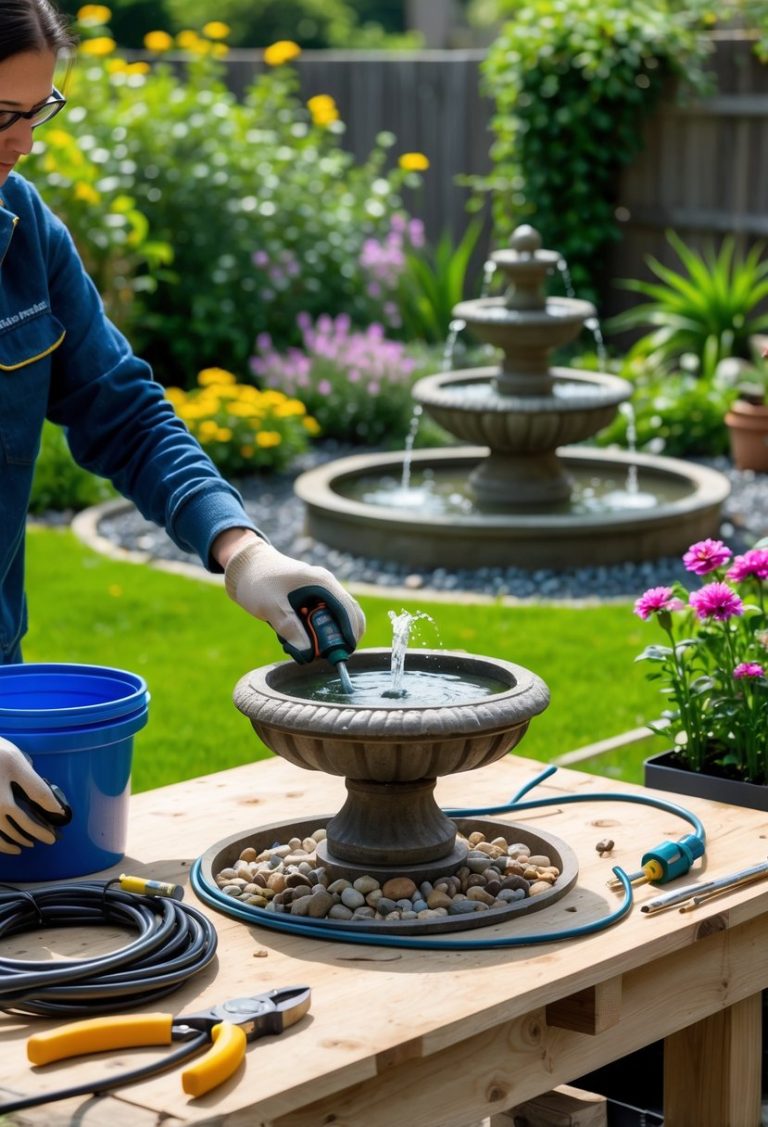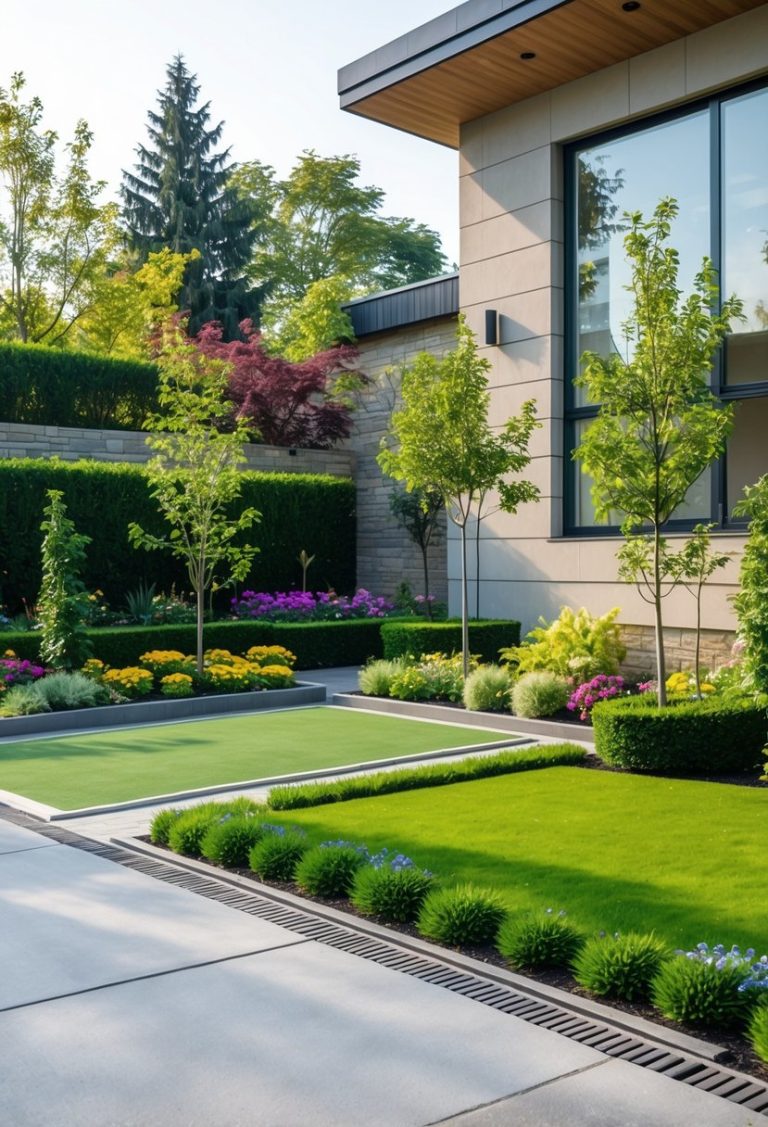19 Best Plants Around The Pool for Stylish and Low-Maintenance Landscaping
Choosing the right plants for around your pool can make a big difference in how your outdoor space looks and feels. You want plants that not only add beauty but also fit well with the pool environment. The best plants will thrive in the sun, handle the pool’s microclimate, and create a relaxing atmosphere.

Your pool area can become more inviting with the right mix of greenery, flowers, and shrubs. It’s important to pick plants that provide shade, privacy, or even help keep bugs away, without causing extra work or damage to your pool. This guide will help you find plants that fit those needs.
1) Hibiscus

You can add a tropical look to your pool area with hibiscus plants. They produce large, colorful flowers in red, pink, yellow, and other shades.
Hibiscus thrives in warm climates and can bloom for many months. It grows well in pots or directly in the ground near your pool.
This plant handles heat well but may need protection from heavy wind or cold. It also attracts butterflies and hummingbirds, adding life to your poolside.
2) Bird of Paradise

The Bird of Paradise is a good choice for planting around your pool. It has large, glossy leaves and bright flowers that look like a bird in flight.
This plant does well in full or partial sun. It can handle some salt exposure, making it practical near pools.
You will need to water it regularly and provide space for it to grow. Its tropical look adds a bold touch to your pool area.
3) Agave

Agave is a strong choice for your pool area. It needs very little water and care, making it ideal for dry climates.
Its thick, tough leaves handle full sun well. You can place it where it gets six or more hours of direct sunlight daily.
Agave adds a sharp, architectural look with unique shapes that stand out. It works well if you want a low-maintenance and stylish plant near your pool.
4) Oleander

You can use Oleander as a fast-growing shrub around your pool. It produces clusters of flowers in colors like white, pink, red, and yellow.
Oleander is good for adding color and privacy. However, be careful because all parts of this plant are toxic if ingested. Keep it out of reach from children and pets to stay safe.
5) Bougainvillea

Bougainvillea is a colorful and hardy plant that works well around pools. It loves full sun and adds bright, vibrant flowers to your poolside area.
You should plant bougainvillea where it can climb or spread, but keep it trimmed to avoid mess. It is drought-tolerant, making it easy to care for in warmer climates.
If you live somewhere cooler, grow it in containers and bring it indoors during frost. This will keep your plant healthy year-round.
6) Canna Lily

Canna lilies add bright color and bold foliage to your pool area. They thrive in warm, sunny spots and need about 6-8 hours of sunlight each day.
You should keep the soil moist but well-drained to help them grow well. These plants handle heat and humidity, making them a good choice for poolside gardens.
Their vibrant flowers bloom throughout the growing season, keeping your pool area colorful for most of the year.
7) Lavender

Lavender is a great choice for poolside planting. It grows well in full sun and can handle heat easily.
Its gray-green leaves and purple flowers add a nice touch of color near your pool. Lavender also gives off a pleasant scent, which helps create a calm atmosphere.
You can plant lavender in pots or garden beds. It helps keep mosquitoes away, making your pool area more comfortable.
8) Yucca

Yucca is a strong plant that grows well in sunny pool areas. You will find it easy to care for since it needs little water and can handle heat.
Its tall, spiky leaves add a clean, architectural look that suits many poolside styles. Yucca stays green all year, giving you consistent color.
If you want a low-maintenance plant with a bold shape, yucca is a good choice for your poolside garden.
9) Cordyline

Cordyline, also called ti plant, adds color and texture to your pool area. It comes in shades of green, pink, and dark red.
This plant grows well in warm climates, usually in zones 10 to 11. You can plant it year-round if your area is suitable.
Cordyline prefers sunny spots, where its leaf colors become more vibrant. It creates a tropical look without much effort.
10) Banana Plant

You can use banana plants to create a tropical look around your pool. They need space to grow and proper care.
Make sure they get enough water, sunlight, and fertilizer. Plant them away from the pool edge to prevent mess from falling leaves.
Banana plants also work well as natural screens if you space them correctly. Their large leaves provide shade and privacy.
11) Ficus
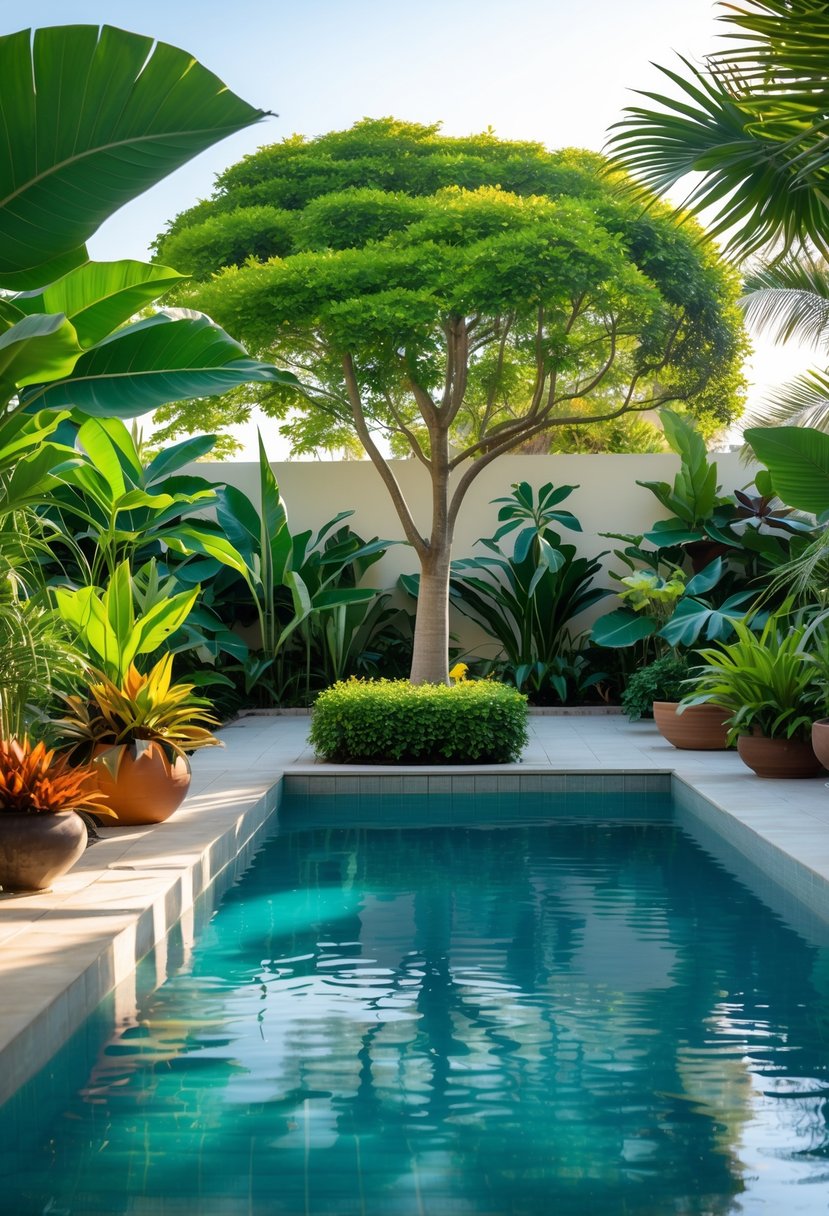
You should be careful when planting ficus near your pool. Their roots can grow large and may damage pool structures or plumbing over time.
Ficus plants offer dense privacy because of their thick leaves. However, if you want a low-maintenance option, this might not be the best choice.
If you decide to use ficus, plant them far from the pool edge. This can help reduce the risk of root damage.
12) Daylilies
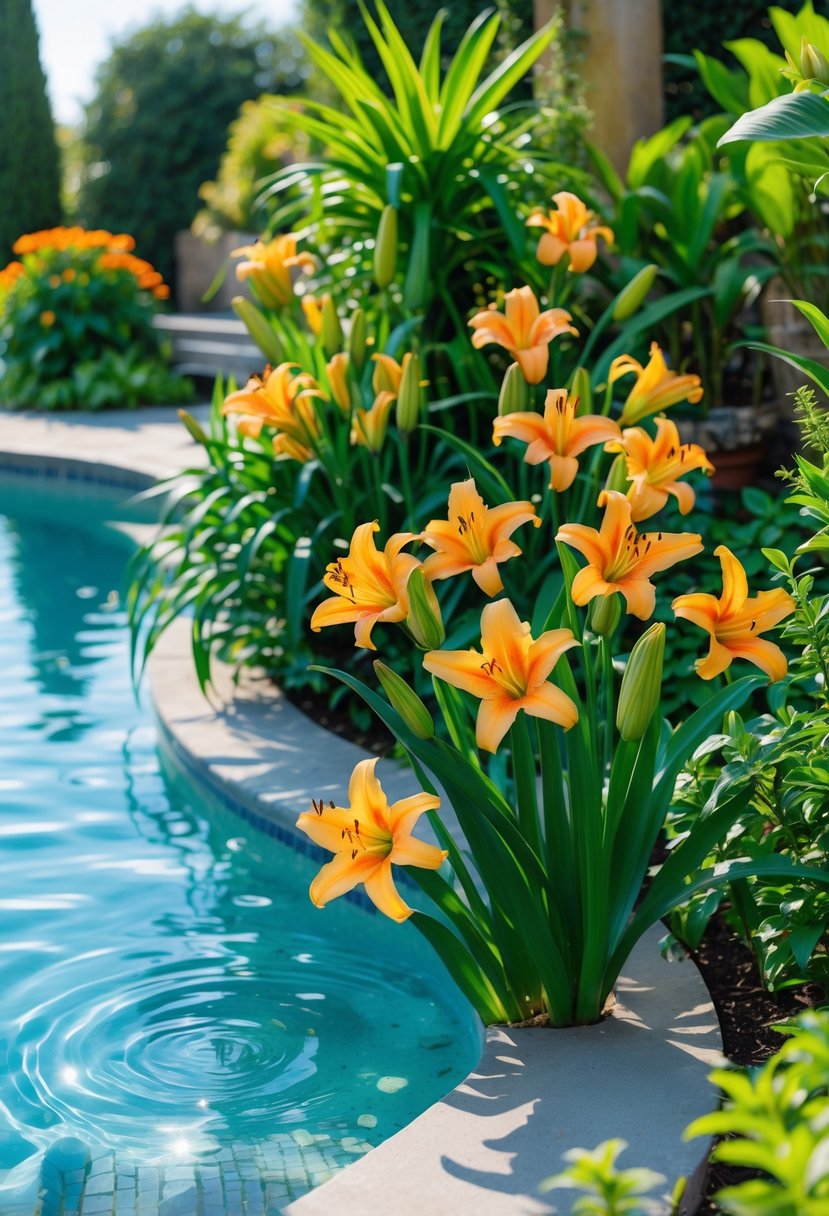
Daylilies are tough plants that bloom all summer. They bring steady color to your pool area with little care.
You should plant them in well-drained soil. They do best in full sun but can handle some light shade.
Daylilies can grow in many conditions. They are a practical choice to make your poolside look bright and inviting.
13) Succulents

Succulents are a great choice for poolside planting. They need little water and handle the bright sun well, which matches the typical pool area.
You can use small types like Sedum or Aeonium to fill gaps or larger ones like Agave for a bold look. They add different textures and colors without much care.
14) Philodendron

Philodendrons are great for poolside areas because they handle shade well. They have large, glossy leaves that add a tropical look to your space.
These plants are low-maintenance and can tolerate humidity and occasional splashes of water.
You can use them as ground cover or in pots to enhance your pool area without much effort.
15) Pentas

Pentas are great for adding bright colors near your pool. They produce clusters of small, star-shaped flowers in red, pink, white, and purple.
You will find Pentas attract butterflies, which adds life to your pool area. These plants prefer full sun and need regular watering.
They are low maintenance and can handle the heat around pools well. Pentas keep your space vibrant without much effort.
16) Plumeria

Plumeria is a good choice for your pool area if you want a tropical look. It grows best in full sun and needs space because its roots can spread.
You should plant it away from the pool edge to avoid root problems. Choose varieties that drop fewer leaves to keep the pool cleaner.
Plumeria’s flowers add color and scent, making your poolside more inviting without too much maintenance.
17) Dwarf Palms

Dwarf palms are a smart choice for around your pool. They stay small, so they won’t block views or take up too much space.
These palms require low maintenance and do not drop many leaves, which helps keep your pool area clean.
You can expect them to add a neat, tropical feel without needing much water or care. They also provide some privacy without overwhelming your space.
18) Gardenia

Gardenias are a great choice for your poolside garden. They offer glossy green leaves and strong, sweet-smelling white flowers.
These plants do best in warm, humid areas with some shade. You’ll want to protect them from direct, harsh sunlight.
Gardenias need regular watering but well-drained soil. Their pleasant scent helps create a relaxing atmosphere around your pool.
19) Mondo Grass

Mondo grass is a low-maintenance groundcover that works well around pools. You can plant it in tight spaces because it grows in a neat, compact form.
It needs well-drained soil and little care once established. Plant the grass four to 12 inches apart, or closer if you choose dwarf mondo grass. It will stay green without much attention.
Essential Care Tips for Poolside Plants

Taking care of plants near your pool requires attention to specific challenges. You need to protect them from water with chemicals, make sure they get enough but not too much water, and adjust for sun and wind exposure. Addressing these factors will help your plants thrive and stay healthy.
Preventing Chlorine Damage
Pool water often contains chlorine, which can harm plants if they get sprayed or splashed frequently. To protect your plants, position them so they are not directly in the path of pool spray or splash zones.
Rinse the leaves occasionally with clean water to wash off any chemical residue. Choose plants that are tolerant to chlorine and salt, such as agave or lavender. Avoid placing sensitive plants like ferns or tender flowering species too close to the pool edge.
Using a physical barrier, like a low fence or dense shrub, can reduce the risk of splash damage.
Irrigation Strategies for Poolside Gardens
Your plants still need regular watering, but poolside gardens face unique challenges with moisture levels. Use drip irrigation or soaker hoses to deliver water directly to the roots without wetting leaves or the pool deck.
Water early in the morning or late in the evening to reduce evaporation and prevent fungal issues. Check soil moisture often; sandy or rocky soil common near pools may dry out faster.
Avoid overwatering as excess moisture can run off into the pool, potentially affecting water quality. Setting a consistent watering schedule based on individual plant needs helps maintain balance.
Managing Sun Exposure and Wind
Sunlight and wind near a pool vary greatly and impact your plants’ health. Many poolside plants do well in full sun, but some need partial shade to avoid leaf scorch.
Use shade structures, umbrellas, or taller plants to protect sensitive species during peak sunlight hours. Wind can dry out plants quickly and increase water needs, so monitor for stress signs such as drooping leaves.
Windbreaks, like hedges or fences, can reduce direct wind impact and create a stable environment. Choose wind-tolerant plants if your pool area is exposed to strong breezes.
Landscape Design Principles for Poolside Planting

When planning plants around your pool, focus on creating layers of different heights and textures. Think about how plants can give you privacy and shade without dropping too many leaves or flowers into the water.
Layering Plants for Visual Impact
Start with tall trees or shrubs at the back to create a natural backdrop. Use medium-sized bushes or flowering plants in the middle for color and interest. Finish with low-growing ground covers or succulents near the pool’s edge.
This layering adds depth and makes your pool area look lush but organized. Choose plants with different leaf shapes and colors for variety. Make sure the plants you select can handle poolside conditions, like sun and humidity.
Creating Privacy and Shade
Use taller plants and shrubs to block views from neighbors or passersby. Bamboo, tall grasses, or evergreen shrubs work well without growing too wide.
For shade, pick trees that have small or manageable leaves that won’t make a big mess in your pool. Palms or citrus trees are good choices because they offer shade but drop little debris. Position them where shade will be most needed during the hottest parts of the day.

